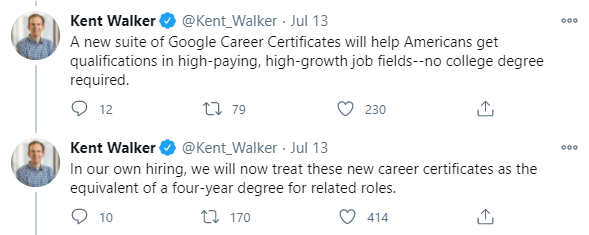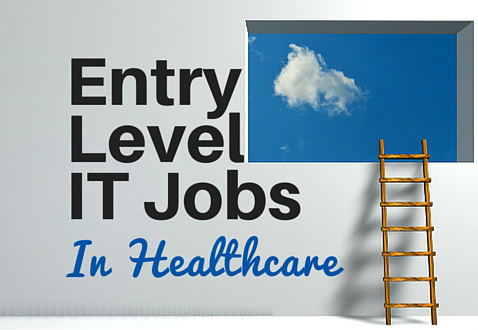As always, 2024 was an eventful year for healthcare information technology. Cybersecurity continued to be a major challenge, with some major healthcare entities suffering ransomware attacks. Artificial intelligence continued to mature, with advances in the integration between pure AI companies and major EHR vendors like Epic. All of this means that healthcare IT continues to be one of the best career choices around.
With that, let’s have a look at my top healthcare IT certifications for 2025.
1. IBM Applied AI Professional Certificate
Last year, there was lots of uncertainty around how artificial intelligence would affect healthcare IT. Some of the practical applications have now come into view with the introduction of technologies that assist in clinical documentation, medical administration, and reporting. For a second year, I’m including an AI course from an established vendor, IBM, with the materials being administered by Coursera.
The Applied AI Professional Certificate covers the basics of AI, its applications and use cases, and explain terms like machine learning, deep learning, and neural networks. Participants will create AI chatbots and virtual assistants, and deploy them on a website. It involves some coding of APIs and Python.
2. Healthcare Data Analytics Certification
Making a third year return to the list are healthcare data analytics certifications. This career path trains students to make use of the mountains of data collected by electronic health records systems, billing systems, pharmacies, and other systems. The data analyst will use Excel, Tableau, SAS, SQL Server, and other tools to mine data and present it in ways that are intended to improve patient outcomes, identify trends, control costs, and help healthcare organizations to meet their organizational goals. Data analytics courses will include studies in statistics, building data models, and using data to detect fraud. These positions have high visibility of senior leadership in any healthcare organization.
Many health data analytics certifications are offered by major universities and range in cost from a couple of thousand dollars to over $10,000. Most courses can be completed in less than one year and most can be done completely online. Below are a few examples of colleges that offer analytics certificates, but a web search of “healthcare IT analytics certifications” will yield many more results.
- UC Davis Healthcare Analytics Certificate Program
- University of New England Graduate Certificate in Healthcare Data Analytics
- Northwestern University Graduate Certificate in Health Data Science
- University of Texas Healthcare Analytics Certificate
- University of Connecticut Advanced Business Certificate in Health Care Analytics
- Saint Mary’s University of Minnesota Healthcare Analytics Certificate
Another resource is this list of colleges that have healthcare IT programs.
3. Certified Associate in Project Management
New to the list for 2025 is the Certified Associate in Project Management (CAPM). The CAPM certification is not specific to healthcare IT, but I am including it for a few reasons:
- Anyone who works in an IT position will benefit from having some project management skills. Applications analysts, database administrators, security analysts, and systems analysts all need to know how to manage project scope, risks, time management, quality control, and other factors;
- The average age of project managers in the US is around 45 years. Over the past year, I have personally been impacted by the retirement of several senior project managers. This has caused me and other analysts to spend time and energy bringing newer project managers up to speed on some important areas of expertise. This trend will continue for some time, which means that there will be continued opportunities for technical workers to perform more project management duties in the healthcare IT space;
- The CAPM certification has a much easier path than the higher-end project management professional (PMP) certification. Unlike the PMP, the CAPM does not require a college degree, and requires only 23 hours of hands-on project management experience to take the test. This makes it a great career addition for people who want the extra project management skills without needing to be a full time project manager.
The CAPM test costs $300 to take, has 150 questions, and must be completed within 3 hours.
Certified Associate in Project Management
Last year, my #3 spot was the Certified Information Systems Security Professional (CISSP) certification. I removed that from my list because of the high cost and high barrier to entry. I believe there are other options that provide better returns for the cost and effort.
4. Cybersecurity Certifications
Security continues to be a top issue and priority in all information technology organizations, with healthcare being the leading area of risk. For 2024, The HIPAA Journal reported 387 healthcare data cyberattacks affecting more than 500 patient records. This is an increase of 8.4% from 2023. As with the healthcare analytics option, I believe the best resource for cybersecurity is to search for certificate and two-year degree programs from a community college.
5. Google Professional Certifications
In 2018, Google started offering technology certifications that by their own hiring standards carry as much weight as college courses. Since then, they have expanded their offerings, which now include healthcare specialization, business intelligence, cybersecurity, IT automation with Python, and more.
- Data Analytics
- Cybersecurity
- Digital Marketing
- Project Management
- User Interface Design
- IT Support
Their affordability cannot be beat, with a beginning cost of $49 per month.
Additionally, Kent Walker, Senior Vice President for Global Affairs and Chief Legal Officer at Google tweeted his support for the certifications:

The offerings also include specializations in several areas, including construction, finance, and yes healthcare IT. If you are starting from scratch in healthcare IT, then this option is one of the easiest ways to start.
The courses run between three and six months, and are entirely online. Learn more at https://grow.google/certificates.
6. Amazon Web Services Certification
Amazon made several moves into the healthcare IT space in 2019, which is why they are on my list again this year. There are currently many healthcare IT job listings on the major job sites that ask for AWS certifications.
AWS has three levels of certification, and I believe having any of them in addition to other healthcare IT certifications and skills will put workers in a good position. Find out more at Amazon Web Services Certifications.
AWS Certified Foundational Cloud Practitioner
This certification is the entry level AWS certification. It covers the basics of the cloud platform, and is targeted to those who are planning on more advanced technical certifications as well as those in management and sales roles who only need to know the basics. Amazon asks for at least six months of AWS experience in any capacity. The 90 minute exam is multiple choice and costs $100 US to take.
AWS Certified Associate
This second level of certification demonstrates the ability to deploy and maintain AWS cloud-based systems. In order to take the test, you need to have had at least one year of experience in problem solving and implementation of AWS cloud services. You can get the Associate level certification as either a Solutions Architect, Developer, or Systems Administrator. The exam is multiple choice, multiple answer, has a 130 minute limit, and costs $150 US.
AWS Professional
This is the highest level of AWS certification, and requires you to have at least two years of comprehensive experience with designing, implementing, and supporting AWWS cloud services at an enterprise level. There are designations for Solutions Architect and DevOps Engineer. The 170 minute exam is multiple choice multiple answer, and costs $300 US to take.
There is also an additional professional level certification called AWS Certified Specialty that demonstrates advanced skills in the areas of advanced networking, big data, and security.
Amazon has also developed a competency designation that recognizes success in AWS services in a number of industries, including healthcare.
7. The “Salad Bar” Approach
With the job market continuing to favor workers, there is something to be said for those who want to hand pick their educational approach. When I talk to people who are looking for the fastest way to get into healthcare IT, I usually tell them to start with these core skills:
- A healthcare terminology class at any local college
- A basic understanding of project management concepts
- An operating system certification such as Linux
- Basic programming skills through an organization like code.org
Health Information Technology Schools Directory
Read More
Next Up:



